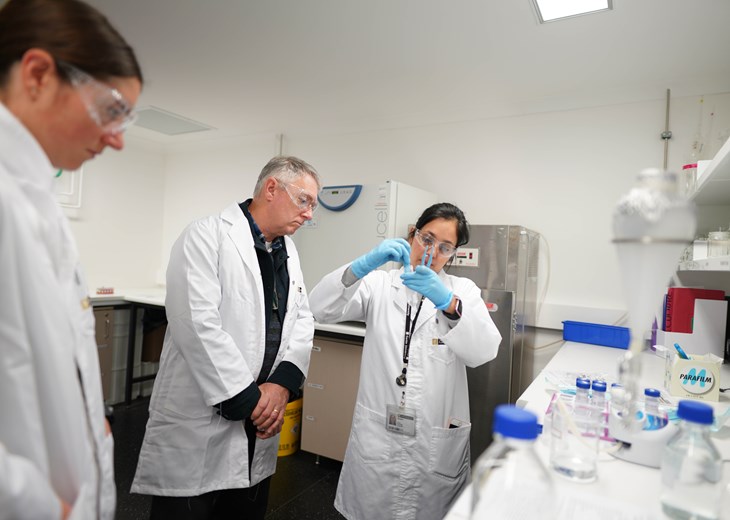Why study Corrosion?

Overview
Corrosion—the degradation of materials, including metals, concrete, polymers, and other materials—costs the global economy 3 to 5% of the global Gross Domestic Product (GDP) annually. Besides its financial impact, corrosion affects health, safety, and the environment.
Corrosion affects all industries, such as oil and gas and resources sectors, and most aspects of human activities. When corrosion is considered across the entire value chain, optimal corrosion management practices can maximise efficiency, ensure safe and environmentally compliant operations, and reduce costs.
Understanding corrosion is the first step to develop and ensure the effective mitigation strategies are in place.
The unique Corrosion engineering courses at Curtin University offer exciting career opportunities for engineers, scientists, and researchers. The degrees will diversify your skill set for employment opportunities across a broad spectrum of industries.
Curtin’s Corrosion Engineering programs provide a unique opportunity for career development in the energy and resources industry. In this regard, there is a growing industry demand for qualified corrosion engineers and quality research in the field of corrosion engineering.
All programs are offered online.
What will you learn?
Depending on the program you choose, upon completion, you will be able to:
- Apply corrosion theories and principles to account for corrosion causes, failures, and prevention strategies for various corrosion phenomena.
- Analyse a range of practical corrosion-related problems, or situations potentially impacted by corrosion, and propose reasoned viable solutions.
- Acquire relevant corrosion-related data from the literature and other sources, and evaluate and synthesise the data to help mitigate the effects of corrosion.
- Use appropriate and professional language to communicate effectively with corrosion engineers, operators and managers in writing and person.
- Apply suitable technologies for corrosion testing and prevention, and explain their strengths and limitations.
- Integrate own knowledge and past practical and academic experience to solve corrosion-related problems.
- Describe major international corrosion prevention standards and practices and outline their differences.
- Demonstrate awareness of the cultural impact of engineering operations.
- Apply time management, problem-solving and critical thinking skills to investigate and solve corrosion problems.
Enquire today
Would you like to learn more? Contact us today!
Get started